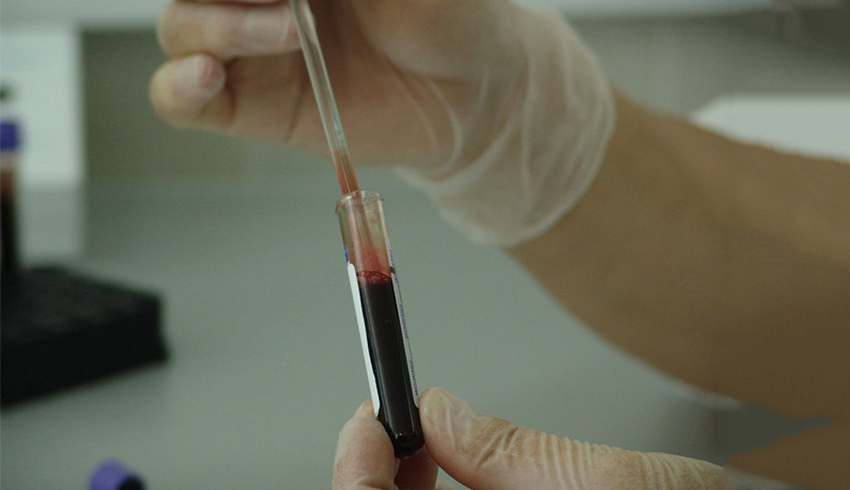Blog
Why is Karyotyping important?

The infertility rate has been increasing in the day-to-day world. We hope the majority knows men and women are equally responsible for the increasing rate of infertility. Before getting into the importance of Karyotyping, I would like to draw your attention to what a karyotyping test refers to. A number of questions must be popping out in your head now. You must be worrying about what do the karyotype tests look for? , which karyotype test do I need? and what do the results mean? Come on, take it easy. It isn’t rocket science. Let’s go easy-peasy on this. Genetic testing may find the cause for your infertility or repeated losses. Knowing why you can’t get pregnant, or why you keep miscarrying, may help your doctor recommend the best treatment options. Another reason to do genetic testing before fertility treatment is to avoid passing on a genetic birth defect to a future child.
When you’re pregnant, your doctor will want to do several prenatal screenings that look for certain genetic and chromosomal disorders. You’ll probably be offered one during your first trimester and another in your second trimester. Most women get results that are within the normal range and don’t need any further tests. But if any of your screenings show signs of a problem, your doctor will offer you follow-up tests so you can find out for sure whether your growing baby has any genetic or chromosomal problems. Your doctor will need a small sample of your baby’s cells to check his chromosomes. There’s more than one way that your doctor can get these cells. These tests are known as karyotype tests.
Now there are some other cases your doctor may refer you to undergo karyotyping test and they are You’ve been unable to conceive for more than a year, you’ve experienced two or more consecutive miscarriages, you’ve experienced a stillborn birth., the male partner has no sperm in his semen or an extremely low sperm count, or the female partner has been diagnosed with primary ovarian dysfunction.
Karyotype tests study your baby’s chromosomes to see if they are normal or not. Humans have 46 chromosomes, which is 23 pairs. Babies inherit 23 from their mom and 23 from their dad. Sometimes, babies have an extra chromosome, a missing chromosome, or an abnormal chromosome. Karyotype tests will determine if any of these have happened with your baby.
The karyotyping test is done like most of the other tests with the blood drawn and the tests carried in the labs. For infertile couples, the test is usually done via a blood draw, from both the male and female partners. The blood samples are then processed in a lab. Cells from the blood sample are placed in a special container to encourage them to grow. Once the cells reach a particular stage of growth, the cells are stained and studied under a microscope. The lab technician evaluates the cells’ size and shape. They also take a photograph of the cells and count the number of chromosomes in the cells. The specialized photograph enables the chromosome arrangements to be evaluated. The most common things that doctors look for with karyotype tests include down syndrome (trisomy 21), Edwards syndrome (trisomy 18), Patau syndrome (trisomy 13), Klinefelter syndrome and Turner Syndrome.
Down syndrome (trisomy 21) happens when a baby has an extra, or third, chromosome 21. This affects how the baby looks and learns. Edwards syndrome (trisomy 18) happens when a baby has an extra 18th chromosome. Babies usually have many problems, and most don’t survive for more than a year. Patau syndrome (trisomy 13) happens when a baby has an extra 13th chromosome. Babies usually have heart problems and severe mental impairment. Most won’t live for more than a year. Klinefelter syndrome is a disorder that affects the sex chromosomes, X and Y. Normally, people have just two sex chromosomes. If they are XX, they are genetic females. If they are XY, they are genetically male. With Klinefelter syndrome, the person has XXY sex chromosomes. One of the possible effects of this is male infertility. Turner syndrome happens when a girl baby has a missing or damaged X chromosome. It causes heart problems, neck problems, and short height.
Your options will depend on what genetic risk you’re facing. In some cases, the diagnosis of a genetic problem or risk may confirm or help make a specific infertility diagnosis, increase your risk of miscarriage or stillbirth, increase your risk of having a child with a specific genetic disorder or increase your risk of passing on male or female infertility to your child. Hence, the Karyotyping test turns out to be an important factor for the expecting couple.
Your doctor will suggest which karyotype test is right for you based on how far along you are in your pregnancy and on your risks. The tests can only be performed during certain weeks of your pregnancy. R-CELL Diagnostics and Research Center performs Karyotyping Tests.









